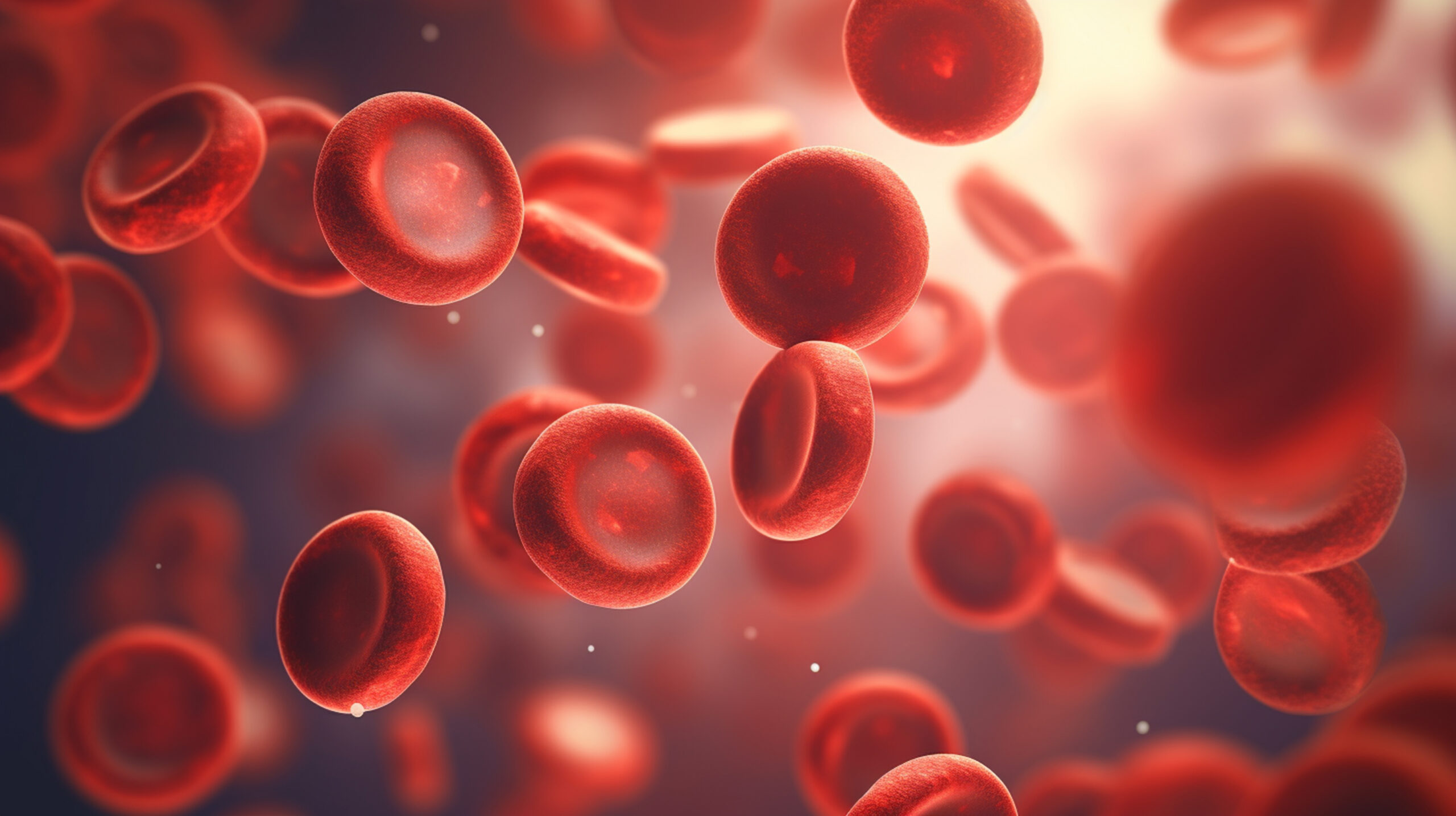Our immune system plays an important role in keeping us healthy. It’s made up of an array of chemicals, proteins, and molecules that work to protect us from harmful germs, viruses, and bugs that can make you sick. You don’t know it’s even there when you’re healthy, but when you get a cold, it gets kicked into high gear supporting your body with whatever it’s fighting.
What is the immune system?
There are three main jobs of the immune system:1
- Fighting molecules that make us sick (called pathogens) like bacteria, germs, viruses, parasites or fungi and remove them from the body.
- Identifying and neutralizing harmful things in the environment
- Combatting disease-causing changes in the body like, cancer cells
The body has special ways to recognize its own cells. There are proteins on our cell membranes that are specific to us and signal to the immune system to stand down. The immune system is activated when cells enter the body that the body doesn’t recognize, called antigens; they have a different protein that tells the body it might be dangerous.
There are two different types of subsystems that make up the greater immune system: the innate and adaptive systems.
The innate immune system is what we’re born with. It’s also called the “non-specific” immune system because it gives us general protection against harmful antigens that enter our body through our skin or the things we eat.
The adaptive immune system accumulates and strengthens over time. It produces antibodies that can target specific germs and viruses that we’ve never seen before. It is also called the “learned or acquired” immune system because these antibodies can learn and remember what they’ve encountered to target that specific bug in the future.
What are Immune disorders?
When the immune system isn’t working properly, it can cause various issues in the body. These can look like an under or overactive immune system, and autoimmune diseases, where the body mistakenly attacks its own cells For example, if your immune system is weak, it doesn’t have enough power to fight off pathogens like it usually can. You may get sick more often and more severely, cuts and bruises can take longer to heal, you constantly have infections, and you have a lot of stomach problems this gas, diarrhea, and constipation.
If your Immune system is overactive, your body can’t tell the difference between good cells and bad cells, so it attacks healthy cells by mistake. Allergic reactions are an example of this; when you have a response, like sneezing, swollen airways, and itchy skin, to something that should be harmless.
Autoimmune diseases are when the immune system mistakes the body’s own cells for those that are harmful and starts to attack. Some examples are:2
- Rheumatoid arthritis- when the body attacks your joints causing them to become painful, stiff, and deformed over time.
- Multiple sclerosis- where the body attacks the protective layer around nerve cells affecting communication between cells in your brain spinal cord and eyes. This leads to issues with things like muscle control, vision, and balance.
- Inflammatory bowel disease- When your body attacks part of the digestive tract causing inflammation, diarrhea, and stomach pain.
- Graves’ disease- When the body causes your thyroid to be overactive (hyperthyroidism), which affects temperature regulation, heart rate, and metabolism. This can lead to heart issues as well as with bones and muscles.
While current treatments for immune disorders vary due to the range of severity, they all focus on treating the symptoms and are only temporary. For instance, immunoglobulin therapy involves injecting antibody proteins into your body to help fight infections. While relatively effective, they need to be done once or twice a week to every few depending on the method.
Stem cells are emerging as a potential therapeutic agent for immune disorders. They are able to repair and replace damaged cells and mesenchymal stem cells (MSCs) specifically are known to have positive effects on the immune system.
What are UC-MSCs
Stem cells form the fundamental cellular base of the body, acting as a master key for all other cell types. Their main role is to replace cells that are dying and to repair tissues that are damaged. We are naturally born with a store of stem cells to help support these processes throughout our lives.
Among the diverse types of stem cells, Mesenchymal stem cells (MSCs) are particularly noteworthy due to their unique abilities. They can transform into a range of cells such as those found in bone, cartilage, and fat, and possess the ability to self-renew, ensuring their population remains stable over time. This is essential for therapeutic applications.3
MSCs are found in three main places in the body; bone marrow, umbilical cord blood, and adipose tissue. Umbilical cord MSCs (UC-MSCs) have generally shown to be more effective than the other types. They proliferate more rapidly and can evolve into the three primary layers of cells, playing a vital role in tissue repair.4
Furthermore, UC-MSCs offer several additional advantages. They can be easily collected, present lower risks of infection and tumor formation, have the potential to develop into various cell types and are less likely to provoke immune reactions. These qualities, coupled with their ethical acceptability, position UC-MSCs as a highly promising option in various clinical contexts.
How MSCs support the immune system
Scientists have started exploring how MSCs and UC-MSCs can positively impact the immune system.
There are clinical studies investigating the effectiveness of MSCs, but the results are often variable and conflicting due to low stem cell survival rates and other cell variations. A recent review looked at different methods to enhance MSC function to improve their efficacy. Their findings highlight some key considerations when choosing to use MSC therapy. For example, using MSCs from a young, healthy donor, preconditioning with substances to boost their survival, genetic manipulations, and combining them with supportive materials can all enhance MSCs’ ability to regulate the immune system. Supporting MSCs can enhance their immune benefits and promote immune balance to slow down an overactive immune system, reduce inflammation, and enhance tissue repair in conditions like rheumatoid arthritis. These techniques can be used in a variety of ways for different patients.5
Another study dove deep into the research on UC-MSCs as an advanced therapy medicinal product (ATMP) and includes therapies on genes, cells, or tissues. These are common in Europe and require stringent regulation to ensure safety. Due to their efficacy in clinical trials, UC-MSCs have demonstrated potent properties that make them highly effective in supporting immune and inflammatory diseases. For example, UC-MSCs can improve severe COVID-19 symptoms by lowering inflammation and improving immune function.6
A preclinical study using immunodeficient mice found that treatment with either bone marrow MSCs (BM-MSCs) or UC-MSCs helped reduce symptoms of graft-versus-host disease (GVHD), a condition where the immune system is triggered by donor cells rejecting their new home. The study found that both sources of MSCs improved GVHD severity, improved mouse survival, and reduced symptoms although they did it through different processes. Despite this being an animal study, it has exciting potential for clinical applications.7
The takeaway
It is essential to have a healthy immune system to maintain good health, and having effective treatments to support our immune systems is crucial. UC-MSCs have been proven to be an effective therapy for supporting the immune system due to their natural role in immune regulation and support. Research indicates that their innate functions can therapeutically act on immune and inflammatory diseases, helping to alleviate symptoms and prevent illnesses.
Although more research is required to better understand how UC-MSCs work clinically in preventing immune diseases, the evidence is promising in a field of conditions that are notoriously difficult to treat.
Resources
- https://www.ncbi.nlm.nih.gov/books/NBK279364/
- https://my.clevelandclinic.org/health/diseases/21624-autoimmune-diseases
- Stem Cell Basics | STEM Cell Information. National Institutes of Health. https://stemcells.nih.gov/info/basics/stc-basics
- Stem Cells: Types, What They Are & What They Do. Cleveland Clinic. https://my.clevelandclinic.org/health/body/24892-stem-cells
- Lee, BC., Kang, KS. (2020) Functional enhancement strategies for immunomodulation of mesenchymal stem cells and their therapeutic application. Stem Cell Res Ther 11, 397. https://doi.org/10.1186/s13287-020-01920-3
- Mebarki, M., Abadie, C., Larghero, J.. Cras, A. (2021). Human umbilical cord-derived mesenchymal stem/stromal cells: a promising candidate for the development of advanced therapy medicinal products. Stem Cell Res Ther 12, 152 (2021). https://doi.org/10.1186/s13287-021-02222-y
- Song, Y., Lim, J. Y., Lim, T., Im, K. I., Kim, N., Nam, Y. S., Jeon, Y. W., Shin, J. C., Ko, H. S., Park, I. Y., & Cho, S. G. (2020). Human mesenchymal stem cells derived from umbilical cord and bone marrow exert immunomodulatory effects in different mechanisms. World journal of stem cells, 12(9), 1032–1049. https://doi.org/10.4252/wjsc.v12.i9.1032




